This page contains some affiliate links. Please review my disclosure policy.
A few months ago I found myself having a really interesting conversation with my parents. We were down in Santa Cruz, which is basically the mecca of the organic food movement. With an innovative organic farming program at UCSC and many vegetables (and berries!) being grown in the region and surrounding areas the conversation of organic food not surprisingly came up.
The last few years have been a crash course for me in learning about the organic food movement. Prior to this education I figured I’d be fine choosing the “clean fifteen” and buying organic from the “dirty dozen”. It never occurred to me that the choices I make with my wallet have larger implications. Our legal right to vote in municipal, state and federal elections is incredibly important, but the votes we make everyday with our purchasing power are not to be diminished.
But back to that conversation…
My Mom was saying that growing up all of her vegetables came in a can and I’m fairly certain my Dad didn’t know green vegetables existed until he met my Mom at 18. The fact that they can now go to a grocery store or better yet, get fresh produce delivered is a huge leap for them from their upbringings. And I’m 100% in support of this. Having access to fresh produce is imperative, organic or not. That being said, there are so many reasons to choose organic and as I discovered in speaking with my parents, these reasons can get lost in the confusing messaging and conflicting resources available.
What I’ve found is that each person differs in their organic why. Everyone has their own why and individually and together they all make extremely valid reasons for choosing organic. However, the more I learn about these reasons, the more I realize how there is a HUGE lack of communication from advocates for organics and the general public. It’s not that this information isn’t available. It is. There is conclusive evidence for each argument to choose organic but taking that information and interpreting it in an easily digestible manner is not available. Not to mention the powerful lobbying groups on the other side whose sole aim is to demonize organics for no other reason than to increase their own profits. But I digress!
So in today’s post I’m sharing 5 reasons to choose organic along with evidence-based research helping to support each cause. The leaders in the organic movement including the Organic Farming Research Foundation, California Certified Organic Farmers (CCOF), The Organic Trade Association (OTA) among many others deserve the credit, but if I can be a conduit to communicate their messaging, I will have done my job well. My hope is that at least one of these reasons will speak to you, but if not I just ask you to do what you can within your means.
I also want to take a second to thank Earthbound Farm for sponsoring this post. Earthbound has been 100% organic since its founding 34 years ago and today grows 30,000 certified organic crop acres. I was given the opportunity to visit Earthbound’s organic farms in the Salinas and Carmel Valleys and learn more about the organic movement. Earthbound is a company bringing organic produce to all but more importantly, spreading the message of why organics matter. Whether you choose organic for the taste, the health benefits or for the health of the planet is up to you but they believe you have the right to all the information to make the decision that is right for you. I could not be more proud to align The Healthy Maven with an incredible mission-driven company. More on them below.
5 REASONS TO CHOOSE ORGANIC
1. The Taste
I can never fault anyone for letting their tastebuds make the decisions. A really interesting fact I learned on my trip with Earthbound was that one of the reasons it’s believed that organic food tastes better is because the produce is allowed to grow at it’s own pace rather than having that growth sped up by synthetic fertilizers. Think of it like slow cooking. We all know food tastes better when it’s been slow cooked. The same applies to the growing of fruits and vegetables. Research has also shown that organic food has up to 69% higher levels of antioxidants, which contributes to its more delicious flavor (source).
2. Your Health
I’m convinced that organic food is better for your health. The commonly used herbicide Roundup (also known as Glyphosate) has been classified as a “probable human carcinogen,” by the WHO’s International Agency for Research on Cancer (source) and the insecticide chlorpyrifos has been associated with developmental delays in infants (source). A recent ground-breaking study in France showed that eating an organic food-based diet was associated with a reduced risk of cancer (source). In addition to the lack of pesticides, organic produce has has been shown to be higher in nutrients, such as Vitamin C, iron, magnesium, and phosphorus (source). The reality is that while a low amount of pesticides may not be extremely harmful to us, long-term exposure in everything from our food to our body care products will have an impact on us.
3. The Health Of Our Soil
Continued exposure to pesticides and fertilizers degrades the quality of our soil to a point where it can no longer be useful. Organic farming on the other hand, actually improves the quality of the soil (source). Think of soil like you think about your gut. Having a healthy gut has an enormous impact on our immune systems and the quality of our health. One of the best ways you can care for your gut is by ensuring there is a good balance of bacteria. Having good bacteria is so so important. Same goes for our soil. Our soil has it’s own microbiome and persistent use of pesticides is like long-term use of antibiotics. It not only destroys the bad bacteria, but it also destroys the good bacteria. At some point there’s no bacteria left to allow the soil to care for itself. It becomes dependent on chemicals to keep it functioning and eventually even that won’t be effective.
According to the soil scientist Dr. Elaine Ingham:
“If we lose both bacteria and fungi, then the soil degrades. Overuse of chemical fertilizers and pesticides have effects on the soil organisms that are similar to human overuse of antibiotics. Indiscriminate use of chemicals might work for a few years, but after awhile, there aren’t enough beneficial soil organisms to hold onto the nutrients” (source)
4. Climate Change
There is actually evidence that choosing organic is helping to prevent climate change, as well as reverse it. Research shows that organic farming has a lower net energy footprint compared to conventional (source). Because most energy is produced by burning fossil fuels that release carbon dioxide (the most common greenhouse gas), lower energy use means less climate change. There is also evidence that organic practices, with their focus on improving soil quality actually store more carbon in soil. On average, organic farms have 44% higher levels of humic acid, the component of soil that sequesters carbon over the long term than soils not managed organically (source). So the soil is effectively “eating up” the carbon that would otherwise be released into the atmosphere, reversing the impact of climate change (source). While many of us feel helpless in the effects of climate change, one opportunity we all have to help reduce or mitigate its impact is to support organic.
5. Offers Better Conditions for Workers
To be honest I hadn’t really thought about this reason to choose organic until my visit to Earthbound Farm. Meeting the farmers and hearing about why their farmers and farm workers chose to work on an organic farm rather than conventional really hit home for me. Many talked about their history working on conventional farms and their fear of exposure to pesticides as well as the impact on their families. Farmer Larry talked to us about how he wouldn’t hug his kids when he got home from work until he’d showered and changed his clothes for fear of exposing his kids.
Earlier this year Monsanto (the makers of Roundup) were sued and ordered to pay a school groundskeeper $289 million after his years of exposure to the chemical led to a terminal cancer diagnosis (source). Dewayne Johnson used the weed killer up to 30 times a year to treat the fields at the school he was working at. Now imagine what this looks like for the farm workers who are out in the fields day after day being exposed to Roundup or similar chemicals. Choosing organic is not only about what’s best for your body and the health of the planet, it’s also what’s best for your fellow citizens and especially those that work the fields to provide the produce you eat everyday.
Some other questions to ponder…
After my trip with Earthbound, I got a lot of questions about organics and Earthbound in general. I’ll first direct you to this post where I answer a lot of your organic questions, however some came up a couple times that they’re worth repeating or digging into.
Can organic feed the world?
In a simple answer: yes. But there’s a more complicated answer for why. There is an interesting dynamic in the organic food space around big organic vs. little organic. Many people associate organic with that cute little farm stand at your weekly farmer’s market. While I’m 100% in support of this and supporting your local farmers, these types of farms are a) not producing a high enough scale to feed the world and b) not accessible to everyone. Earthbound’s farms may not be small, but having gotten to know their farmers they are equally as passionate about farming in a way that nourishes the soil, not just to grow a crop and profit.
If you have access to local farmers and the money to afford buying your food from them, please do support them! That being said, there are many people in this country who don’t have this accessibility or the funds needed to support small-scale farming. Large-scale organic companies like Earthbound Farms make organic accessible to everyone and are able to produce large enough yields to feed us all. Big organic is not evil and organic does not mean small-scale.
What about the packaging?
I got this question a lot after my trip with Earthbound. To be honest, there isn’t an easy solution to this. What I will say is that when it comes to choosing which products to pick, you’re actually better-off selecting clamshells rather than plastic bags (in terms of baby lettuces). Earthbound’s clamshells are made from 100% PCR plastic (so it’s reused) whereas bags are made from virgin plastic (creating more waste). I know companies like Earthbound are working on a solution to the packaging issue but for now know that everyone is doing the best they can.
But organics still use pesticides right?
Yes, but there’s a difference between synthetic chemicals and natural ones. Using Roundup is not the same as spraying with neem oil – an oil from a type of tree that acts as a powerful insecticide. The standards of organics only allow for 24 naturally-derived pesticides, whereas conventional uses over 1000 types of synthetic pesticides. These natural pesticides are also a final resort after trying things like crop rotation and physically picking off insects. To learn more about what’s required to receive organic certification, check out this page by the USDA.
What if I can’t afford organic?
This is a tricky one, but I’ll say this: Do what you can. There are so many reasons why organics are more expensive. It’s somewhat driven by lower consumer demand, lack of government funding for organics, the need to compensate more workers, among many other reasons. I sympathize, I really do. That being said, we as a society undervalue how much money we should be spending on food. Most countries in the world spend a large chunk of their budget on food, but in the US we expect our food to be dirt cheap. Until we collectively shift our values, everything will seem expensive. The organic premium is actually pretty small. In salads, it’s typically 10-20%… So it’s not just on farmers to drop the prices, it’s on us too.
Do you eat 100% organic?
People ask me this all the time. The true answer: No I do not! Would I like to? Absolutely? But there’s a lot of things out of my control. In our home, we mostly buy organic produce and meat and do the best we can with non-perishables as well as body care and home products. Out of the house, it becomes a lot trickier. I will say that if given the option, we always choose organic. That being said, there’s a lot out of our control and though I dream of a world where we don’t have to ask “is this organic?” I don’t stress about it if it isn’t. Like I said, do what you can with what you have access to.

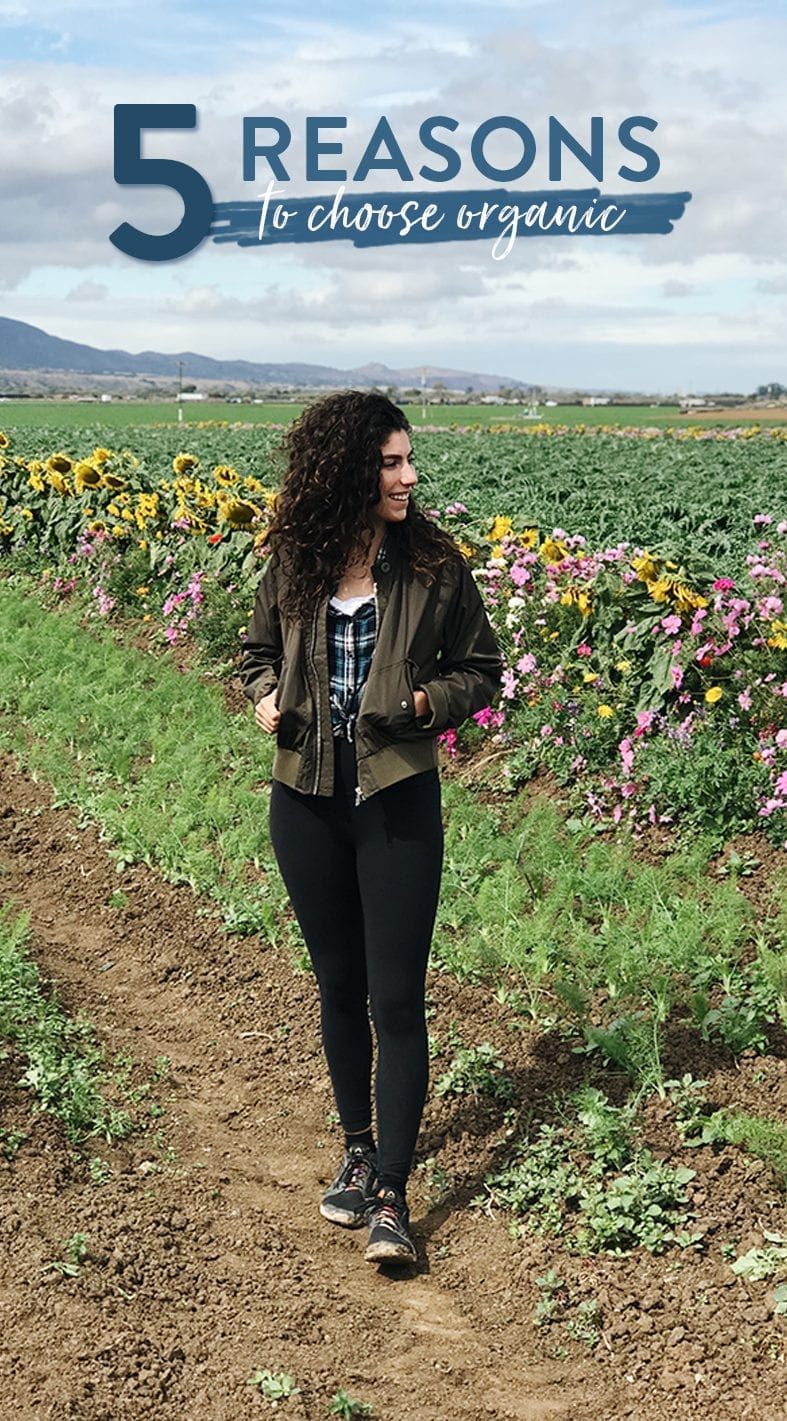
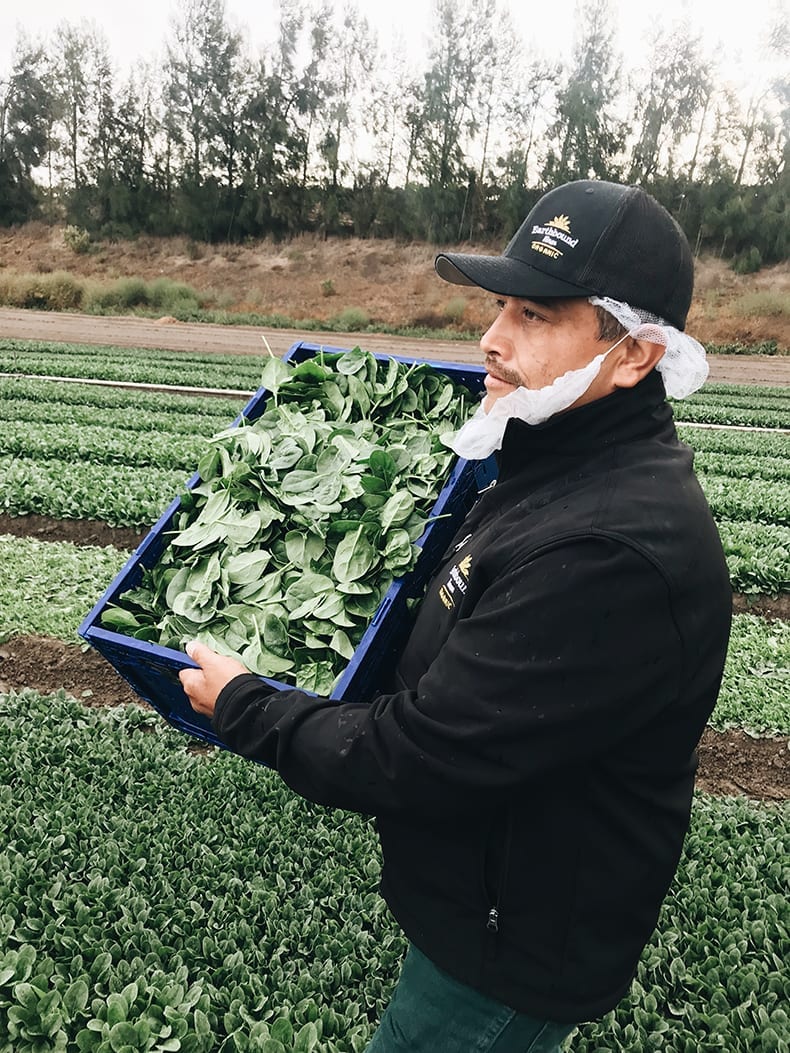
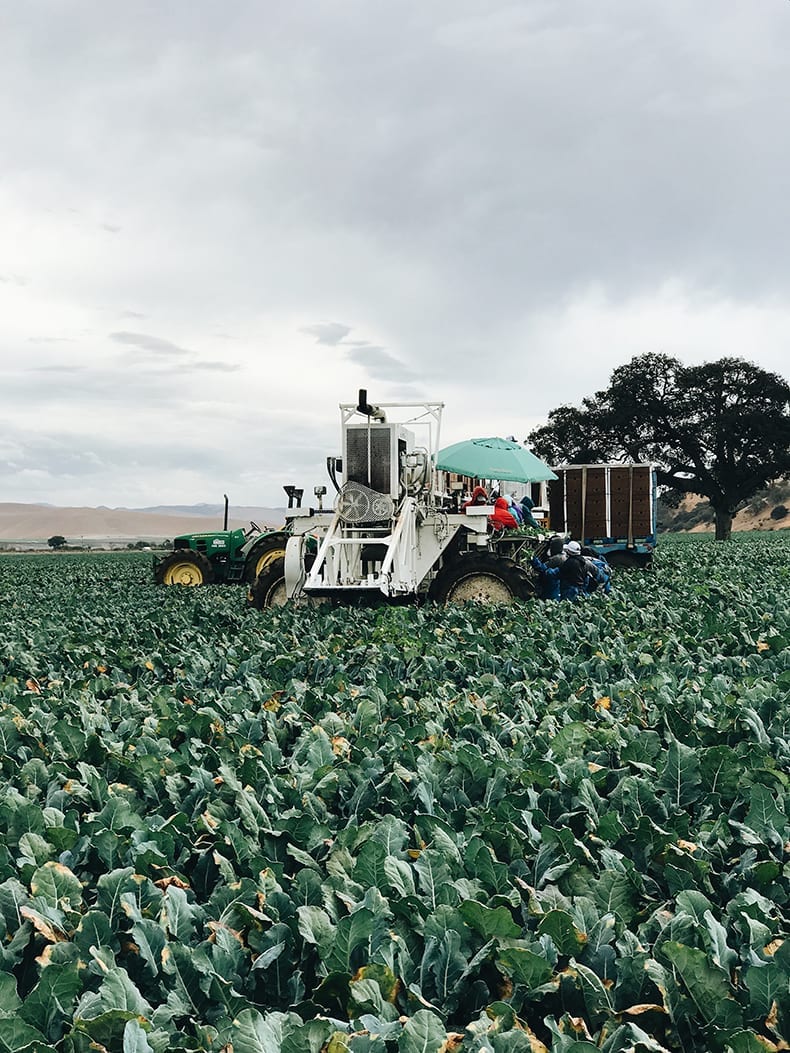
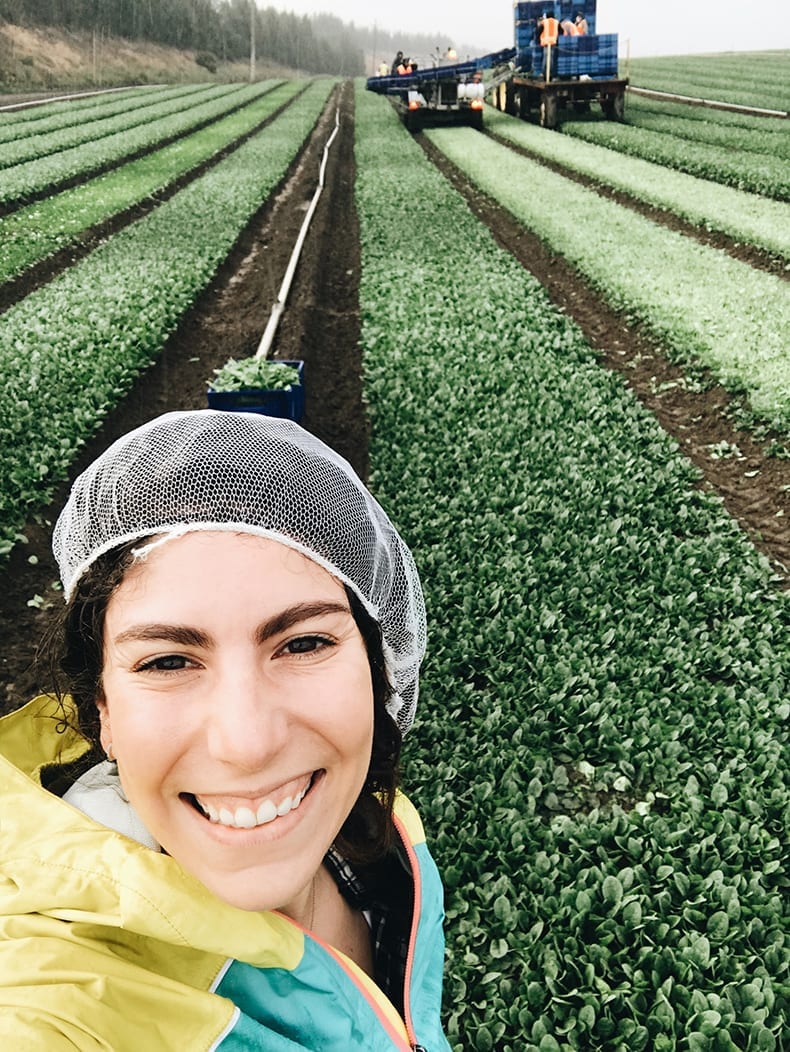

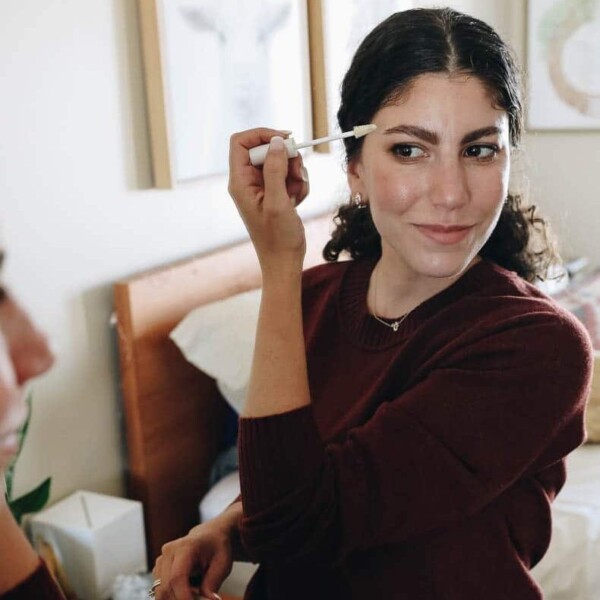

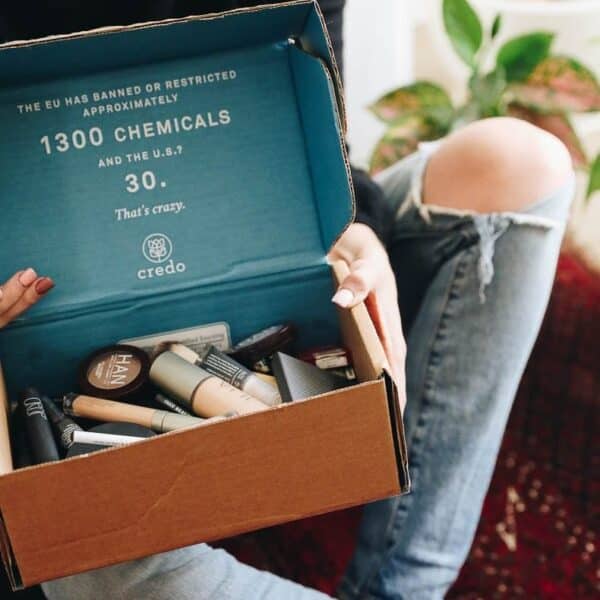






Amazing, Thanks for sharing such a meaningful post related organic.